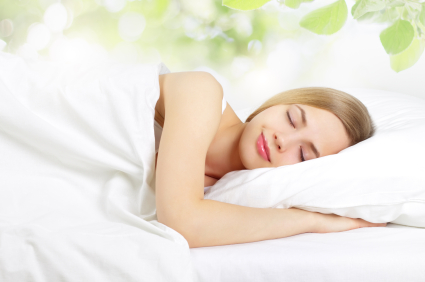Short Sleepers
Scientists recommend that you need to sleep for about eight hours to ensure optimal functioning of your body. However, due to the chaotic and hectic lifestyles of today, most of us learn to make do with five, six or seven (for the luckier ones) hours of sleep. We then take caffeine to try and counteract the negative effects, and make up for the deficit during the weekends. Sleep deprivation can lead to exhaustion, crankiness, chronic fatigue, decreased focus and memory, reduced ability to control our appetite and persistent headaches. Severe long-term effects include serious conditions like heart disease, Alzheimer’s, obesity and diabetes.
There exists, however, a small category of lucky people who only need to sleep for four hours and wake up feeling fully refreshed. This rare category of individuals, who are commonly referred to as short sleepers, are genetically hard-wired to live on much less sleep than the rest of us. Comprising of less than 3% of the total population, short sleepers are unlike insomniacs who may sleep for only four hours or less but wake up feeling lousy the next day. Within four to six hours of sleeping, short sleepers enter the restorative and deep sleep required by the body. This kind of sleep takes ordinary people eight hours to achieve and as a result, researchers have labeled them ‘efficient sleepers’.
Ying –Hui Fu, a genetics and neurology professor at the University of California’s school of medicine was among the first scientists to research on this phenomenon in 1996. A woman approached her seeking to find out the reason behind the curious trend among members of her family of consistently waking up very early. Professor Fu delved deep in the genetics of the woman and she later expanded her study to cover other people who displayed similar unusual sleeping habits. She found out that there was a group of people who could only sleep for short periods of time, regardless of the time that they went to bed. Fu and her colleagues were able to link this trait with a mutation in the DEC2 gene, which controls the circadian rhythms (the daily biological cycles of our bodies) and production of cells, among other functions.
Fu and her research colleagues also genetically modified mice and fruit flies to show the same mutation and studied the resultant effects. They established that the mutation caused more intense sleep (shown by measuring the brain’s electrical activity) and therefore less of it was needed by the body.
However since only about 3% of the total human population probably has this gene, Fu cautions that many people who habitually sleep for less than eight hours a day are accumulating a potentially risky amount of sleep debt. Scientists opine that this ability to thrive on little sleep is most likely an anomaly in terms of genetics. You cannot therefore practice and learn to be a short sleeper. There are other essential differences between short sleepers and ordinary people. The circadian rhythms of short sleepers are different to those of the majority of people. They are also more energetic, more optimistic and can tolerate more psychological pain than the average person. Despite the fact that sleep deprivation causes diabetes and obesity, the metabolism of short sleepers is above average and they are generally thinner than most people.
Famous sleep-less people!
Historically, famous people such as Thomas Jefferson, Leonardo da Vinci and Benjamin Franklin are said to have been too busy to get much sleep. Others like Thomas Edison and Winston Churchill are also reputed to have slept less, though they were partial to taking daytime naps. Other famous figures in modern times who are said to be short sleepers include Martha Stewart, Madonna and Bill Clinton. Donald Trump also claims to sleep 4 hours or less every day.
If you wish to know whether you belong to this elite category of people, ask yourself whether you only sleep for five hours during weekends or when on vacation. If you find yourself sleeping for seven or eight hours when you have the opportunity, you are most probably not a short sleeper. Therefore, you really need the recommended eight hours of sleep every day of the week as well. It is hoped that one day scientists like Fu will discover a treatment that can help to ward off the harmful effects of sleep deprivation. They may also find ways of using gene therapy to transfer the efficient sleeping abilities of short sleepers to ordinary people.

